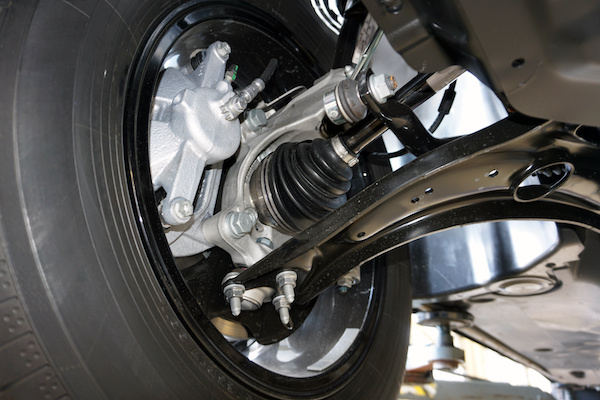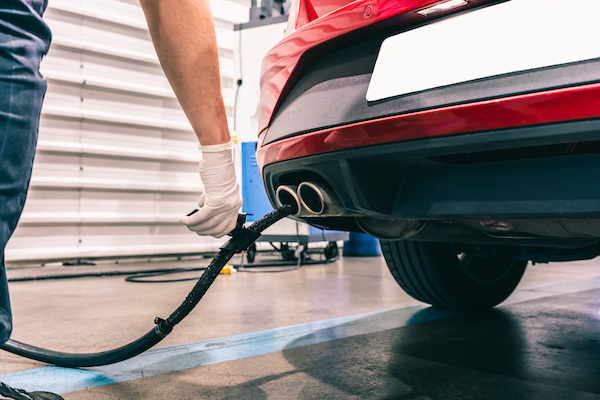Posted on 12/21/2021

Most drivers are unaware of how important shock absorbers are to the vehicle's overall safety. Like all other parts of the motor system, shocks (including struts), can deteriorate over time. To identify malfunctioning shock absorbers and safeguard your car's safety, you must be aware of the shock absorbers’ lifespan and when they should be replaced. What Are Shock Absorbers? Shock absorbers are suspension components that govern the wheel's bouncing. Their primary function is to reduce the vehicle's motion and keep it from bouncing on its suspension springs when driving. But whether your vehicle is moving or not, shock absorbers, even struts, still operate. As a result, they can degrade very quickly. Shock Absorbers: how long can they last? Shock absorbers have a life expectancy of around 4 to 6 years. However, it is dependent on the state of the roads on which you mostly travel. If you usually drive yo ... read more
Posted on 11/24/2021

While most of us do not drive nearly as much as we used to prior to the pandemic, some don't drive a lot in general. For example, you might work from home, you're retired, or you're a stay-at-home mom or dad. Regardless of your reason, many people have questions about their needed car services like an oil change. Do you still need it if you don't meet the mileage interval threshold for an oil change? Do you still need oil changes if you don't drive a lot? YES, we'll explain why. General recommendations for oil changes are often defined by the number of miles you've driven since your last service: 3,000, 5,000, or even as much as 10,000 miles. But what if months and months have gone by and you aren't close? It would be best if you still had your oil changed at least 1-2 times a year. Oil, like everything else, degrades over time. If you have "expired" oil sitting in your engine, it's not healthy for your vehicle when you do run your ... read more
Posted on 10/20/2021

Passing your smog test doesn't require any rocket science. If you take proper care of your car, you shouldn't have to worry about failing at all. Your vehicle needs to be within the "normal range" of emissions determined by the government to pass the test. Once you get a renewal notice from California's DMV, you should make an appointment with a licensed station, mark your calendar, and start "studying"/preparing your vehicle for the test. Here are some of our top tips on how to pass your smog test! Perform Regular Maintenance Maintenance is key to pass the smog check with stripes and stars. You should get all your maintenance tasks, including oil changes and spark plug replacements, beforehand. Renewing your fuel injectors can also benefit you by ridding of carbon deposits and lessening emissions. Make Sure Your Tires Are Properly Inflated The more air you put in your tires, the less stress you put on the engine, making it burn less. Please e ... read more
Posted on 9/21/2021
.jpeg)
The newer the car, the more advanced in technology its operating systems will be. Did you know that your vehicle has numerous sensors throughout its systems? They are connected to your car's internal computer, and they're there to serve one goal: communicate if there are any existing and potential problems with its associated vehicle components. Unfortunately, just like any other car part, sensors can fail and produce false alerts. In most cases, they'll do what they are supposed to do in order in your best interest. Some cars have more sensors than others, and certain manufacturers will tweak their sensor tech over the years. However, here are some of the most popular automotive sensors that you should be aware of: Oxygen Sensor: The O2 sensor can be found in the exhaust system and monitors the corresponding levels of oxygen to the exhaust gasses being discharged from the engine. It assists the vehicle's computer system in regulating emission co ... read more
Posted on 8/17/2021
.jpeg)
Your transmission is a component of the engine that converts power to torque. Torque is a force that turns an object—such as weeks—around an axis or axle. Your transmission transforms all of the movement into something that keeps your car moving from place to place. Without an operating transmission, your vehicle won't get you where you need to be. To avoid an expensive auto repair bill, look for these symptoms of transmission trouble. Check Engine Light On. While this light could signify numerous issues under the hood, it could also suggest you're combatting transmission issues. Because the check engine light is attached to an intelligent sensor in your engine, it can recognize vibrations and problems before you ever see or hear them. As soon as you notice this light, please take your car to RM Automotive to get it checked out. Slippery Gears. One of your transmission's most essential tasks is to manage your gear shifts. When it's defective, your transmis ... read more